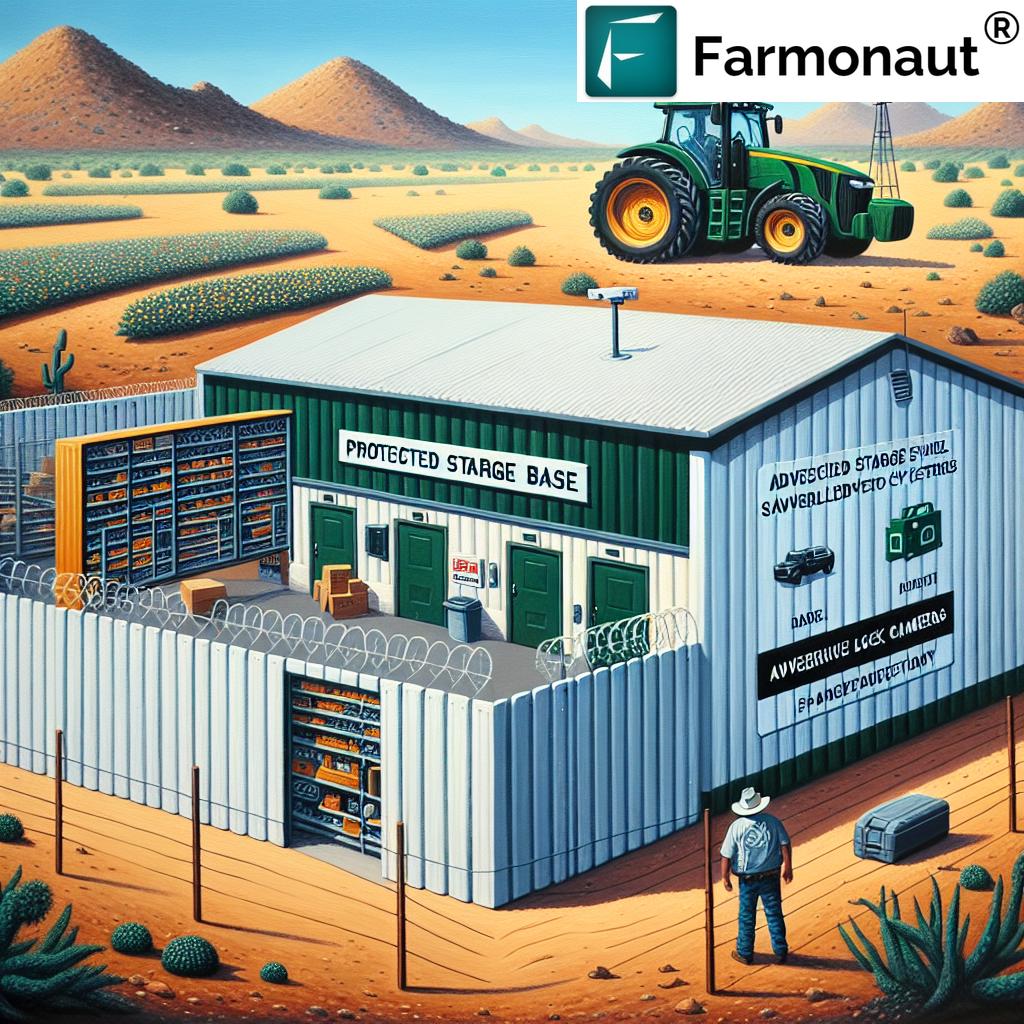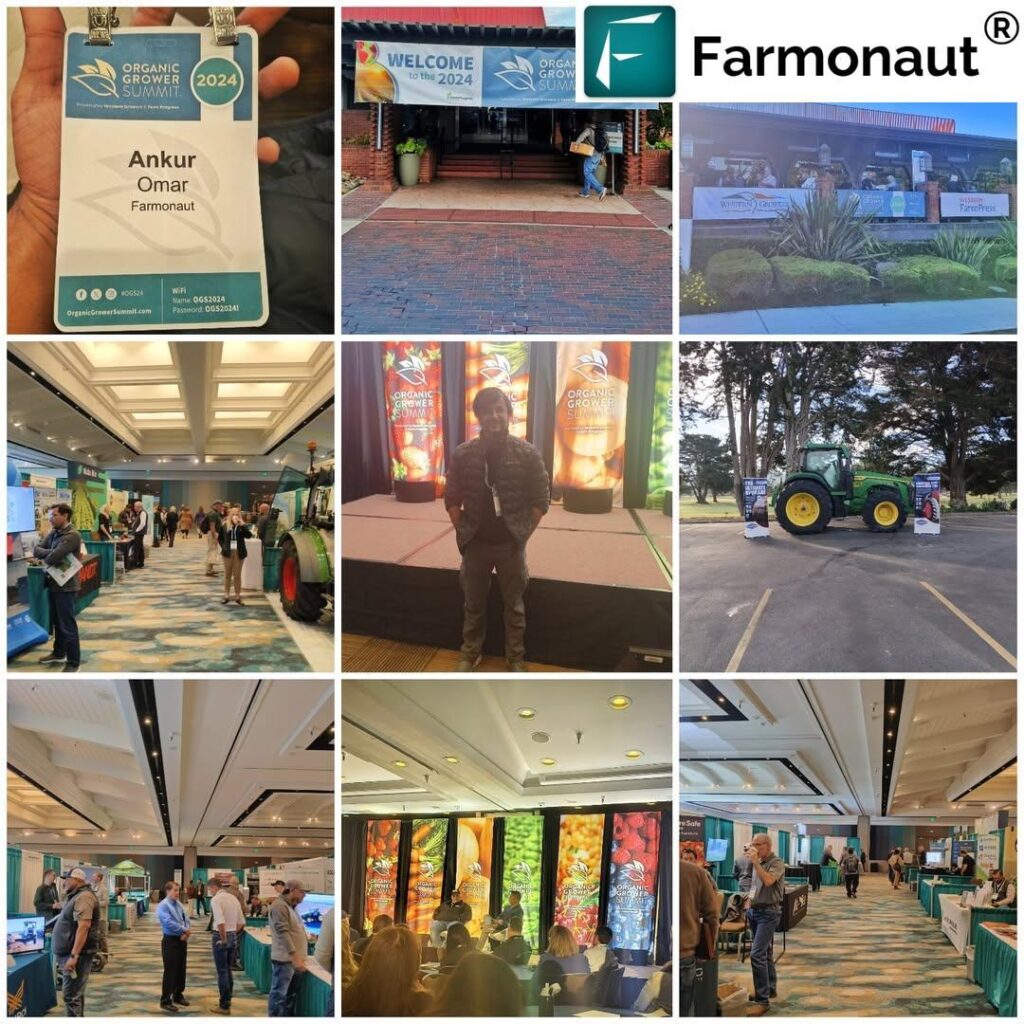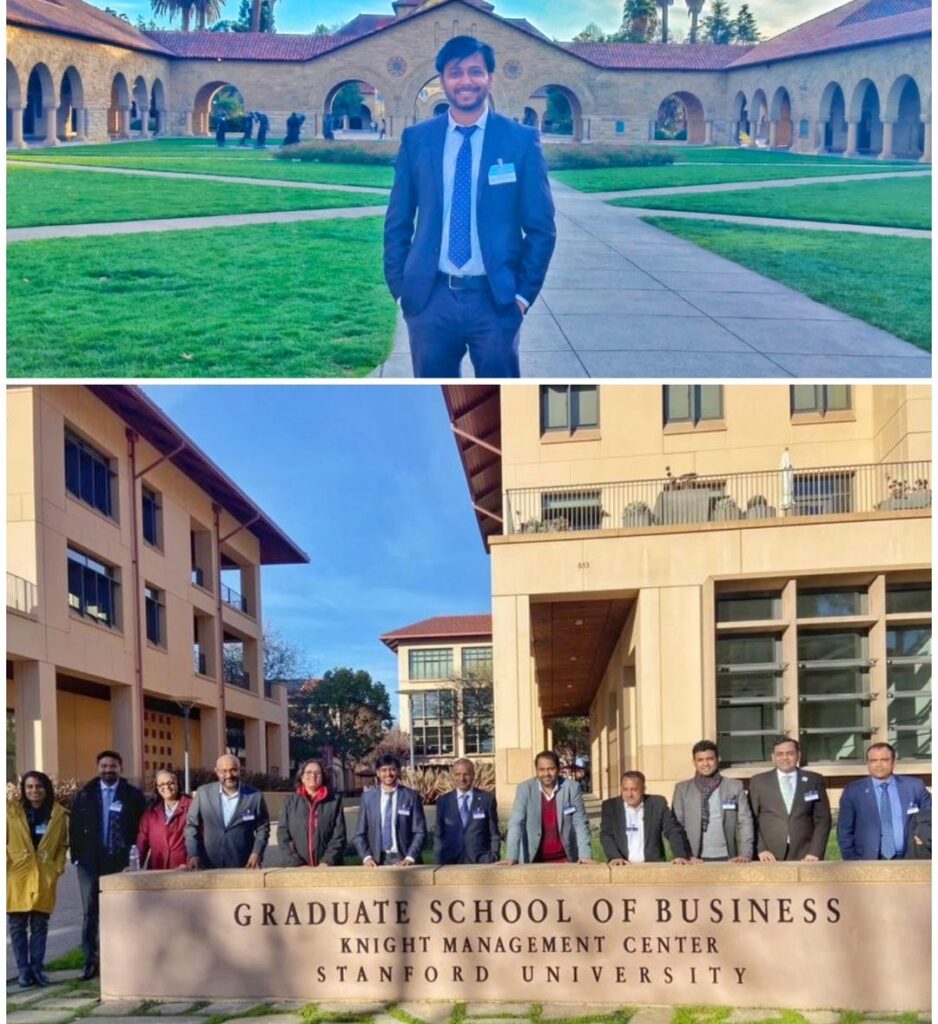Securing Agricultural Assets: Tucson Farms Face Rising Equipment Theft Challenges
“Recent agricultural equipment theft in Tucson has affected multiple farms, with tractors and trailers among the most targeted items.”
In recent weeks, the agricultural community of Tucson, Arizona, has been rocked by a series of alarming equipment thefts that have left local farmers and nursery owners reeling. As we delve into this pressing issue, we’ll explore the far-reaching consequences of these crimes and discuss strategies for protecting valuable agricultural assets. The rising trend of agricultural equipment theft not only threatens the livelihoods of hardworking farmers but also poses significant challenges to the local economy and food security.
The Growing Threat of Agricultural Equipment Theft in Tucson
The recent spate of thefts has sent shockwaves through Tucson’s farming community, highlighting the urgent need for enhanced farm security measures. As the gem shows approach, a time when the city typically buzzes with economic activity, local agricultural businesses face significant challenges due to stolen tractors, trailers, and valuable materials. This incident underscores the vulnerability of farming equipment and nursery businesses to theft, impacting not only property but also labor and the local economy.

Let’s take a closer look at two recent cases that exemplify the severity of the situation:
Case Study 1: Utah Dump Digger
Tyree Lamph, owner of Utah Dump Digger, reported a burglary that occurred on Christmas Day, resulting in the loss of valuable materials, including flat stones and bones. The impact of this theft on Lamph’s operations has been severe, with estimated losses between $85,000-$100,000. Lamph emphasized that the theft not only disrupts his business but also threatens the livelihoods of his dozen employees and those connected to the nursery, which employs around 15 people.
Case Study 2: Nighthawk Natives Nursery
Bernie Jilka, the owner of Nighthawk Natives Nursery, experienced a similar fate. Upon arriving at her property, Jilka discovered a break-in, culminating in the destruction of a shed door and the theft of her tractor, along with other supplies. The stolen tractor, in which she had already invested between $8,000-9,000, is vital for various operations within her agricultural business. Jilka noted that not having the tractor has hindered her ability to execute essential tasks, making the situation even more stressful given the timing.
Both Lamph and Jilka have reported significant intrusion on their properties, with Lamph’s trailer also being broken into. The Pima County Sheriff’s Department is currently investigating the situation; however, no suspects have been apprehended thus far.
The Ripple Effect of Agricultural Equipment Theft
“The rising trend of farm equipment theft is causing significant financial strain and productivity disruptions for Tucson’s agricultural businesses.”
The impact of these thefts extends far beyond the immediate loss of equipment. Let’s examine the various ways in which agricultural equipment theft affects farmers, businesses, and the broader community:
- Financial Strain: The immediate financial impact of replacing stolen equipment can be crippling for farmers, especially small-scale operations.
- Productivity Loss: Without essential equipment like tractors, farmers face significant delays in planting, harvesting, and other critical tasks.
- Labor Disruption: As seen in the cases of Lamph and Jilka, equipment theft can threaten the jobs of farm workers and associated businesses.
- Economic Impact: The ripple effect extends to the local economy, particularly during events like the Tucson gem shows, which attract international visitors.
- Food Security Concerns: Disruptions in farm operations can lead to reduced crop yields, potentially affecting local food supply chains.
To better understand the scope of this issue, let’s examine a comprehensive table that assesses the impact of equipment theft on Tucson farms:
| Equipment Type | Estimated Theft Frequency | Average Replacement Cost (USD) | Productivity Impact | Recommended Security Measures |
|---|---|---|---|---|
| Tractors | High | $50,000 – $100,000 | Significant | GPS tracking, immobilizers, secure storage |
| Trailers | High | $5,000 – $20,000 | Moderate | Wheel locks, hitch locks, security cameras |
| Specialized Tools | Medium | $1,000 – $10,000 | Moderate | Locked tool boxes, inventory tracking |
| Irrigation Equipment | Medium | $5,000 – $30,000 | Significant | Fencing, motion-activated lights, alarms |
| Harvesting Machinery | Low | $100,000 – $500,000 | Severe | 24/7 monitoring, secure storage facilities |
This table clearly illustrates the severity of the issue for different equipment types and underscores the multifaceted impact of theft on farm operations. It also provides actionable insights by suggesting security measures for each equipment type.
Strategies for Tractor Theft Prevention and Agricultural Property Security
Given the significant threat posed by equipment theft, it’s crucial for farmers and agricultural businesses to implement robust security measures. Here are some effective strategies for protecting valuable farm assets:
- Implement GPS Tracking: Install GPS tracking devices on tractors and other valuable equipment to monitor their location in real-time.
- Secure Storage Solutions: Invest in secure storage containers and locked facilities to protect equipment when not in use.
- Install Security Cameras: Set up a comprehensive surveillance system to monitor your property and deter potential thieves.
- Use Immobilizers and Locks: Equip tractors and trailers with immobilizers and high-quality locks to prevent unauthorized use.
- Implement Access Control: Restrict access to equipment storage areas and maintain a log of who enters and exits these zones.
- Conduct Regular Inventories: Keep detailed records of all equipment and conduct regular inventories to quickly identify any missing items.
- Invest in Lighting: Install motion-activated lighting around storage areas and farm perimeters to deter nighttime theft attempts.
- Create a Farm Watch Program: Collaborate with neighboring farms to establish a community watch program, increasing vigilance in rural areas.
- Utilize Smart Technology: Implement IoT (Internet of Things) devices for real-time monitoring and alerts of unauthorized equipment movement.
- Develop an Emergency Response Plan: Create and regularly update a plan for immediate action in case of theft, including contact information for local law enforcement.

The Role of Technology in Agricultural Asset Protection
In today’s digital age, technology plays a crucial role in enhancing farm security and protecting agricultural assets. Advanced solutions like those offered by Farmonaut can significantly contribute to safeguarding farm equipment and improving overall farm management.
Farmonaut’s satellite-based farm management solutions provide valuable tools for farmers to monitor their properties remotely. While primarily focused on crop health and management, these technologies can be adapted to enhance security measures:
- Real-time Monitoring: Satellite imagery can be used to detect unusual activities or movement on farm properties.
- AI-based Advisory Systems: These systems can be programmed to alert farmers of potential security risks or suspicious activities.
- Resource Management Tools: By tracking equipment usage and location, these tools can help quickly identify if machinery is being used outside of normal operating hours or locations.
To learn more about how technology can aid in farm management and security, check out Farmonaut’s solutions:
The Importance of Farming Equipment Insurance
While prevention is crucial, it’s equally important for farmers to protect themselves financially in case of theft. Farming equipment insurance plays a vital role in ensuring agricultural business continuity in the face of such threats. Here are some key points to consider:
- Comprehensive Coverage: Ensure your insurance policy covers not just the equipment’s value but also potential loss of income due to theft.
- Regular Policy Reviews: As your farm grows and acquires new equipment, regularly update your insurance policy to ensure adequate coverage.
- Documentation: Keep detailed records of all equipment, including purchase receipts, serial numbers, and photographs, to facilitate insurance claims if necessary.
- Risk Assessment: Work with your insurance provider to conduct regular risk assessments and implement recommended security measures, which may lead to reduced premiums.
Community Response and Support
In the wake of these thefts, the Tucson farming community has rallied together to support affected businesses and strengthen collective security measures. Some notable community responses include:
- Reward Offers: Tyree Lamph has offered a $2,500 reward for information leading to the perpetrators, encouraging community involvement in solving the crime.
- Increased Vigilance: Neighboring farms and businesses have increased their vigilance and are sharing information about suspicious activities.
- Community Outreach: Local agricultural associations are organizing workshops and seminars on farm security and theft prevention.
- Collaboration with Law Enforcement: Farmers are working closely with the Pima County Sheriff’s Department to improve response times and investigation procedures for agricultural thefts.
The Role of Technology in Farm Management and Security
As we consider ways to enhance farm security and management, it’s worth exploring how advanced technologies can contribute to these efforts. Farmonaut, a leading provider of satellite-based farm management solutions, offers tools that can indirectly aid in farm security while primarily focusing on crop health and management.
Let’s take a look at some of Farmonaut’s innovative solutions:
While Farmonaut’s primary focus is on crop management and monitoring, these technologies can be adapted to enhance overall farm security:
- Satellite-Based Monitoring: Regular satellite imagery can help detect unusual changes or activities on farm properties.
- AI-Powered Insights: Advanced algorithms can be trained to identify potential security risks or unauthorized equipment movement.
- Real-Time Alerts: Farmers can receive immediate notifications about unexpected changes or activities on their properties.
For more information on how Farmonaut’s technology can benefit your farm, visit their API page or check out the API Developer Docs.
Legislative and Policy Considerations
As agricultural equipment theft becomes a more pressing issue, there’s a growing need for legislative action and policy changes to address this problem. Some potential areas for improvement include:
- Stricter Penalties: Advocating for harsher penalties for agricultural equipment theft to serve as a stronger deterrent.
- Equipment Registration: Implementing a mandatory registration system for large agricultural equipment, similar to vehicle registration, to aid in recovery efforts.
- Grant Programs: Establishing government grant programs to help farmers invest in security measures and equipment tracking technologies.
- Cross-Border Cooperation: Enhancing cooperation between law enforcement agencies across state lines to combat interstate theft rings.
- Public Awareness Campaigns: Launching initiatives to educate the public about the severity of agricultural theft and its impact on food security and local economies.
The Future of Farm Security: Emerging Technologies and Trends
As we look to the future, several emerging technologies and trends are shaping the landscape of farm security and agricultural asset protection:
- Drone Surveillance: Autonomous drones equipped with cameras and sensors can provide regular aerial patrols of farm properties.
- Blockchain for Equipment Tracking: Implementing blockchain technology to create immutable records of equipment ownership and transfers.
- Artificial Intelligence and Machine Learning: Advanced AI systems can analyze patterns and predict potential security threats before they occur.
- Biometric Access Control: Implementing fingerprint or facial recognition systems to restrict access to high-value equipment and storage areas.
- Internet of Things (IoT) Integration: Connecting all farm equipment to a central monitoring system for real-time tracking and control.
Economic Impact and Recovery Strategies
The economic impact of agricultural equipment theft extends beyond the immediate loss of property. It can have long-lasting effects on farm productivity, local employment, and even food prices. To mitigate these impacts and promote recovery, consider the following strategies:
- Diversification: Spread risk by diversifying farm operations and equipment to reduce dependency on any single piece of machinery.
- Equipment Sharing Programs: Participate in or establish local equipment sharing programs to provide temporary solutions for farms affected by theft.
- Financial Planning: Develop robust financial plans that account for potential theft-related losses and recovery periods.
- Community Support Networks: Establish networks within the farming community to provide mutual aid and support during recovery periods.
- Technology Adoption: Embrace farm management technologies that can improve efficiency and potentially offset productivity losses from equipment theft.
Case Studies: Successful Farm Security Implementations
Learning from successful security implementations can provide valuable insights for farmers looking to enhance their own protection measures. Here are two hypothetical case studies based on common security strategies:
Case Study 1: Smith Family Farm
The Smith Family Farm implemented a comprehensive security system including GPS tracking on all major equipment, surveillance cameras, and motion-activated lighting. They also established a farm watch program with neighboring properties. Within the first year, they successfully deterred two attempted thefts and quickly recovered a stolen trailer thanks to GPS tracking.
Case Study 2: Green Valley Cooperative
The Green Valley Cooperative, comprising 15 small farms, pooled resources to invest in a shared security system. This included a centralized monitoring station, drone patrols, and a rapid response team. The cooperative approach not only made advanced security measures affordable but also created a strong sense of community vigilance. Theft attempts in the area decreased by 70% in the two years following implementation.
The Role of Education and Training in Farm Security
Education and training play a crucial role in improving farm security. By equipping farmers, farm workers, and even local communities with the knowledge and skills to prevent and respond to theft, we can create a more resilient agricultural sector. Consider the following educational initiatives:
- Security Workshops: Organize regular workshops covering topics such as equipment security, surveillance techniques, and emergency response procedures.
- Online Training Modules: Develop easily accessible online courses on farm security best practices.
- Youth Education Programs: Incorporate farm security awareness into agricultural education programs for young farmers.
- Vendor Partnerships: Collaborate with equipment manufacturers and security companies to provide training on the latest security technologies.
- Community Awareness Campaigns: Launch public education initiatives to help non-farming community members understand the importance of reporting suspicious activities around farms.
Leveraging Technology for Enhanced Farm Management
While our focus has been on security, it’s worth noting that advanced farm management technologies can indirectly contribute to better security by improving overall farm operations and awareness. Farmonaut’s solutions, for instance, offer comprehensive farm monitoring capabilities that can be adapted for security purposes.
By utilizing satellite imagery and AI-powered insights, farmers can maintain a constant overview of their properties, potentially identifying unusual activities or changes that could indicate security breaches.
Conclusion: A Collective Approach to Agricultural Asset Protection
The rising challenge of agricultural equipment theft in Tucson serves as a stark reminder of the vulnerabilities faced by farmers and the need for comprehensive security measures. By implementing robust farm security measures, leveraging advanced technologies, and fostering community cooperation, we can work towards creating a safer environment for agricultural businesses.
Remember, protecting agricultural assets is not just about securing equipment; it’s about safeguarding livelihoods, ensuring food security, and maintaining the economic stability of rural communities. As we move forward, let’s continue to innovate, collaborate, and adapt our approaches to meet the evolving challenges of farm security.
For those looking to enhance their farm management capabilities, consider exploring Farmonaut’s advanced solutions:
Frequently Asked Questions (FAQ)
- Q: What are the most commonly stolen agricultural equipment items in Tucson?
A: Tractors, trailers, and specialized tools are among the most frequently targeted items by thieves in the Tucson area. - Q: How can I best protect my farm equipment from theft?
A: Implement a multi-layered approach including GPS tracking, secure storage, surveillance cameras, and strong locks. Also, consider joining or forming a local farm watch program. - Q: What should I do if my agricultural equipment is stolen?
A: Immediately report the theft to local law enforcement, provide them with detailed information about the stolen items, and notify your insurance company. Also, alert neighboring farms and local agricultural associations. - Q: Are there any government programs to help farmers improve security?
A: While specific programs may vary, some regions offer grants or subsidies for farm security improvements. Check with your local agricultural extension office for information on available resources. - Q: How can technology like Farmonaut help in preventing equipment theft?
A: While Farmonaut primarily focuses on crop management, its satellite imagery and monitoring capabilities can be adapted to detect unusual activities on farm properties, potentially aiding in theft prevention and recovery efforts.
By staying informed, implementing robust security measures, and leveraging advanced technologies, we can work together to combat the rising threat of agricultural equipment theft and ensure the continued prosperity of Tucson’s farming community.




















